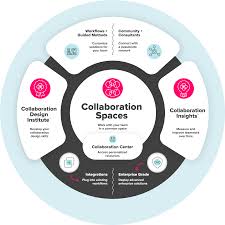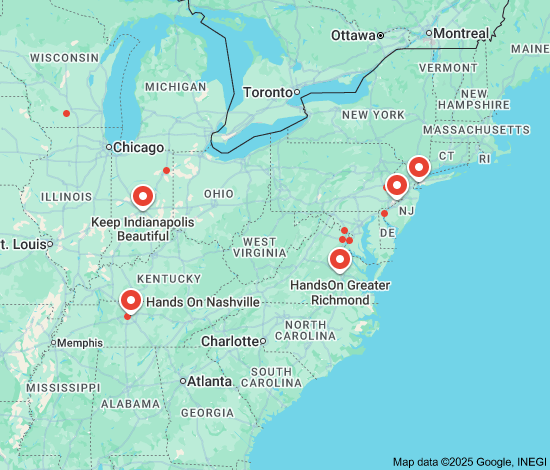The Importance of Volunteering at a Food Bank
Volunteering at a food bank is a meaningful way to give back to the community and make a positive impact on the lives of those in need. Food banks play a crucial role in providing essential food assistance to individuals and families facing hunger and food insecurity.
By volunteering your time and effort at a food bank, you are directly contributing to the fight against hunger and helping to ensure that everyone has access to nutritious food. Your involvement can make a significant difference in the lives of those who are struggling to put food on the table.
Volunteering at a food bank also offers valuable opportunities for personal growth and development. It allows you to connect with people from diverse backgrounds, develop new skills, and gain a deeper understanding of the challenges faced by vulnerable populations in our society.
Furthermore, volunteering at a food bank can be a rewarding experience that brings a sense of fulfillment and purpose. Knowing that your efforts are making a tangible difference in the lives of others can be incredibly gratifying and inspiring.
In conclusion, volunteering at a food bank is not only important for addressing hunger and food insecurity but also for fostering compassion, empathy, and community spirit. Consider donating your time to support your local food bank and be part of the collective effort to create a more just and caring society.
9 Reasons to Volunteer at a Food Bank: Make a Difference and Enrich Your Life
- 1. Make a direct impact on fighting hunger in your community.
- 2. Help ensure that individuals and families have access to nutritious food.
- 3. Gain valuable insights into the challenges faced by those experiencing food insecurity.
- 4. Develop new skills and enhance your personal growth through volunteering.
- 5. Connect with people from diverse backgrounds and build meaningful relationships.
- 6. Experience the satisfaction of knowing you are making a tangible difference in people’s lives.
- 7. Contribute to creating a more compassionate and caring society.
- 8. Support a vital community service that plays a crucial role in addressing hunger.
- 9. Feel a sense of fulfillment and purpose by giving back to those in need.
Challenges of Volunteering at a Food Bank: Scheduling, Physical Demands, and Emotional Impact
- Limited flexibility in volunteering schedules may be a barrier for individuals with busy or unpredictable work/life commitments.
- Physical demands of tasks such as lifting and sorting food items may not be suitable for individuals with certain health conditions or physical limitations.
- Volunteering at a food bank may sometimes involve exposure to emotionally challenging situations, such as interacting with clients facing difficult circumstances, which can be draining for some volunteers.
1. Make a direct impact on fighting hunger in your community.
By volunteering at a food bank, you can directly contribute to fighting hunger in your community. Your involvement helps ensure that individuals and families facing food insecurity have access to essential nutrition. By dedicating your time and effort to support a food bank, you play a vital role in providing meals to those in need, making a tangible difference in addressing hunger locally. Your actions not only help alleviate immediate hunger but also contribute to building a more resilient and supportive community for all its members.
2. Help ensure that individuals and families have access to nutritious food.
Volunteering at a food bank plays a crucial role in helping ensure that individuals and families have access to nutritious food. By dedicating your time and effort to sorting, packing, and distributing food items, you contribute directly to the fight against hunger and food insecurity. Your involvement helps to bridge the gap between surplus food resources and those in need, ensuring that everyone in the community has access to essential nutrients for their well-being. This pro of volunteering at a food bank not only addresses immediate hunger needs but also promotes long-term health and nutrition for individuals and families facing economic challenges.
3. Gain valuable insights into the challenges faced by those experiencing food insecurity.
Volunteering at a food bank provides a unique opportunity to gain valuable insights into the challenges faced by those experiencing food insecurity. By directly engaging with individuals and families seeking assistance, volunteers can develop a deeper understanding of the complex issues surrounding hunger and poverty. This firsthand experience not only raises awareness about the realities of food insecurity but also fosters empathy and compassion towards those in need. Through volunteering, individuals can gain a more nuanced perspective on the struggles faced by vulnerable populations and be inspired to take meaningful action towards creating positive change in their communities.
4. Develop new skills and enhance your personal growth through volunteering.
Volunteering at a food bank offers a valuable opportunity to develop new skills and enhance personal growth. By engaging in tasks such as organizing donations, assisting clients, or coordinating food drives, volunteers can cultivate essential skills such as communication, teamwork, problem-solving, and time management. These experiences not only benefit the food bank but also empower volunteers to expand their capabilities and confidence. Additionally, volunteering provides a platform for individuals to step out of their comfort zones, learn from diverse perspectives, and gain a deeper understanding of community needs. Overall, volunteering at a food bank is not just about giving back; it is also a pathway to self-improvement and personal enrichment.
5. Connect with people from diverse backgrounds and build meaningful relationships.
Volunteering at a food bank provides a unique opportunity to connect with individuals from diverse backgrounds and build meaningful relationships. As volunteers come together to support a common cause, they have the chance to learn from each other’s experiences, cultures, and perspectives. These interactions not only foster a sense of unity and understanding but also create lasting bonds that transcend differences. Building relationships with fellow volunteers and those receiving assistance at the food bank can enrich one’s life with new insights, empathy, and connections that extend beyond the volunteer experience.
6. Experience the satisfaction of knowing you are making a tangible difference in people’s lives.
Volunteering at a food bank provides a unique opportunity to experience the profound satisfaction of knowing that you are making a tangible difference in people’s lives. By dedicating your time and effort to help those in need access nutritious food, you are directly impacting the well-being and quality of life of individuals and families facing hunger and food insecurity. This sense of fulfillment that comes from knowing your contributions are positively impacting others can be incredibly rewarding and inspiring, motivating you to continue supporting your community and creating a meaningful impact through your volunteer work.
7. Contribute to creating a more compassionate and caring society.
Volunteering at a food bank contributes to creating a more compassionate and caring society by fostering empathy and understanding towards those facing food insecurity. By actively engaging in efforts to support individuals in need, volunteers not only provide essential assistance but also demonstrate solidarity and compassion towards their fellow community members. This act of kindness and generosity helps to build stronger connections within society, promoting a culture of empathy, support, and care for one another. Through volunteerism at food banks, individuals can play a vital role in shaping a more compassionate and inclusive society where everyone is valued and supported.
8. Support a vital community service that plays a crucial role in addressing hunger.
By volunteering at a food bank, you are supporting a vital community service that plays a crucial role in addressing hunger. Food banks serve as lifelines for individuals and families facing food insecurity, providing them with essential nourishment and sustenance. Your contribution as a volunteer helps ensure that these critical services continue to reach those in need, making a tangible difference in the fight against hunger within the community.
9. Feel a sense of fulfillment and purpose by giving back to those in need.
Volunteering at a food bank offers individuals the opportunity to feel a deep sense of fulfillment and purpose by giving back to those in need. Knowing that your time and effort are directly impacting the lives of individuals and families facing hunger can be incredibly rewarding. By contributing to the fight against food insecurity, volunteers experience a profound sense of satisfaction and fulfillment, knowing that they are making a positive difference in the community. This act of generosity not only benefits those receiving assistance but also enriches the lives of volunteers, fostering a strong sense of purpose and connection to something greater than themselves.
Limited flexibility in volunteering schedules may be a barrier for individuals with busy or unpredictable work/life commitments.
Limited flexibility in volunteering schedules at food banks can pose a significant challenge for individuals with busy or unpredictable work/life commitments. The rigid time requirements may deter potential volunteers who are unable to commit to regular shifts due to their demanding schedules. This con creates a barrier for those who wish to contribute their time and effort but struggle to find opportunities that align with their availability. As a result, some individuals with genuine intentions to volunteer may feel discouraged or excluded from participating in this meaningful cause due to the lack of flexibility in scheduling.
Physical demands of tasks such as lifting and sorting food items may not be suitable for individuals with certain health conditions or physical limitations.
The physical demands associated with tasks like lifting and sorting food items at a volunteer food bank may pose challenges for individuals with specific health conditions or physical limitations. Engaging in such activities could potentially exacerbate existing health issues or lead to discomfort for those with mobility constraints. It is crucial for volunteer organizations to provide alternative roles or accommodations to ensure that individuals of all abilities can contribute meaningfully without compromising their well-being. Prioritizing inclusivity and accessibility in volunteer opportunities is essential to create a welcoming environment where everyone can participate and support the important work of food banks.
Volunteering at a food bank may sometimes involve exposure to emotionally challenging situations, such as interacting with clients facing difficult circumstances, which can be draining for some volunteers.
Volunteering at a food bank may present a significant con in the form of exposure to emotionally challenging situations. Interacting with clients who are facing difficult circumstances, such as hunger and food insecurity, can be draining for some volunteers. Witnessing firsthand the struggles that individuals and families are going through may evoke strong emotions and take a toll on one’s mental well-being. It requires a great deal of empathy and emotional resilience to navigate these situations effectively. Volunteers need to be prepared for the emotional demands that come with supporting those in need at a food bank, as it can be a challenging aspect of the volunteer experience.




Leave a Reply